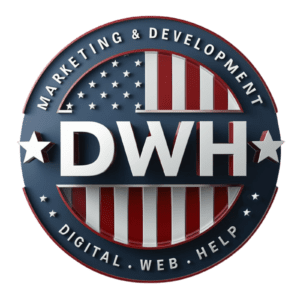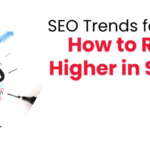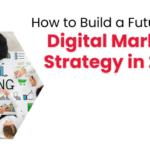
AI in Marketing 2025: Transforming the Digital Landscape
Introduction to AI’s Growing Influence
As we approach 2025, artificial intelligence (AI) is becoming an integral part of the marketing landscape. Its ability to analyze vast amounts of data and provide actionable insights is transforming how brands engage with consumers. With advancements in machine learning and natural language processing, AI is reshaping everything from campaign strategies to customer interactions. As businesses increasingly recognize the importance of AI in marketing 2025, those that effectively harness its power will likely lead in the digital marketplace.
AI for Campaign Personalization
One of the most significant advantages of AI in marketing is its ability to personalize marketing campaigns. In 2025, brands will leverage AI algorithms to analyze consumer data, tailoring messages and offers to individual preferences and behaviors. This level of personalization enhances customer experiences and improves conversion rates. By utilizing artificial intelligence digital marketing, marketers can create dynamic content that adapts in real-time based on user interactions, ensuring that each consumer receives the most relevant messaging at the right moment.
AI-Powered Tools for Content Creation
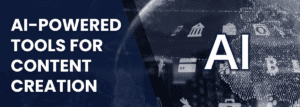
Content creation is another area where AI is making waves. Advanced AI-powered tools can assist in generating high-quality content, from blog posts to social media updates. By analyzing trends, keywords, and audience interests, these tools can produce tailored content that resonates with target demographics. In 2025, marketers will increasingly rely on AI to streamline content production through marketing automation, allowing creative teams to focus on strategy and storytelling while AI handles repetitive tasks, ultimately enhancing efficiency.
Predictive Analytics in PPC and SEO
Predictive analytics powered by AI is set to revolutionize pay-per-click (PPC) advertising and search engine optimization (SEO). By analyzing historical data and user behavior, AI can predict which keywords, ad placements, and bidding strategies will yield the best results. Marketers can optimize their campaigns in real time, adjusting bids and targeting to maximize ROI. In 2025, the use of predictive analytics will enable brands to allocate resources more effectively, ensuring that every marketing dollar is spent wisely.
Chatbots and Customer Service Automation
AI-driven chatbots are transforming customer service by providing immediate, 24/7 support. These automated voice assistants can handle inquiries, resolve issues, and even guide customers through purchasing processes—all without human intervention. As we approach 2025, chatbots will become more sophisticated, using natural language processing to engage in meaningful conversations and provide personalized assistance. This marketing automation not only enhances customer satisfaction but also frees up human agents to focus on more complex tasks.
The Growing Influence of AI in Marketing
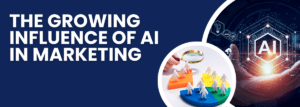
As we move into 2025, the influence of AI on marketing will continue to grow, shaping the way brands connect with consumers. From personalized campaigns and content creation to predictive analytics and automated customer service, AI offers powerful tools for enhancing marketing strategies. Businesses that embrace AI technology will be well-positioned to thrive in the digital landscape, delivering exceptional customer experiences and driving sustained growth. The future of marketing is here, and it’s powered by artificial intelligence digital marketing.
Why Choose AI-Driven Marketing Over Traditional Approaches

As the marketing landscape evolves, many businesses are recognizing the significant advantages of adopting AI-driven marketing strategies over traditional approaches. Here are several compelling reasons to make the switch:
- Enhanced Personalization
AI enables marketers to analyze vast amounts of data to understand individual customer preferences and behaviors. Unlike traditional marketing, which often relies on broad demographic categories, AI-driven strategies can tailor messages and offers to specific audiences. This level of personalization leads to higher engagement rates and improved conversion.
- Improved Efficiency
AI can automate repetitive tasks such as data analysis, targeted email marketing, and social media posting. This marketing automation allows marketing teams to focus on strategy and creativity rather than manual processes, increasing overall productivity. Traditional marketing methods often involve time-consuming manual efforts that can be streamlined with AI.
- Data-Driven Insights
AI excels at processing and analyzing data quickly, providing marketers with actionable insights in real time. This allows for more informed decision-making and agile responses to market changes. Traditional marketing often relies on historical data and guesswork, which can lead to missed opportunities.
- Predictive Analytics
With AI, marketers can utilize predictive analytics to forecast trends and customer behaviors. This capability allows brands to anticipate customer needs and adjust their strategies, accordingly, ensuring they stay ahead of the competition. Traditional marketing approaches typically lack this level of foresight and adaptability.
- Cost-Effectiveness
AI-driven marketing can optimize ad spend by analyzing performance data to identify the most effective channels and strategies. This targeted approach can lead to a better return on investment (ROI) compared to traditional marketing, which may allocate resources less efficiently.
- Real-Time Engagement
AI tools enable real-time interactions with customers through chatbots and personalized content delivery. This immediacy fosters stronger relationships and enhances customer satisfaction. Traditional marketing methods often lack the immediacy and responsiveness that AI can provide.
- Scalability
AI-driven marketing solutions can easily scale as a business grows. Whether you’re expanding your customer base or entering new markets, AI can adapt to increased data and complexity. Traditional marketing approaches may struggle to scale efficiently without significant investment in resources.
- Continuous Learning and Improvement
AI algorithms continuously learn from new data, allowing for ongoing optimization of marketing strategies. This adaptability ensures that campaigns evolve based on customer feedback and changing market conditions. Traditional marketing methods may not provide the same level of agility and responsiveness.
Choosing AI-driven marketing over traditional approaches offers numerous advantages, including enhanced personalization, improved efficiency, and data-driven insights. As the marketing landscape continues to evolve, leveraging the power of AI in marketing 2025 will be essential for brands looking to thrive in an increasingly competitive environment. By embracing AI, businesses can create more effective strategies, foster better customer relationships, and ultimately drive growth.
The Pitfalls of Overlooking AI-Driven Marketing
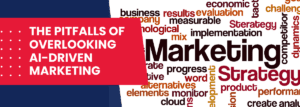
In today’s fast-paced, digitally driven marketplace, neglecting digital marketing can have significant repercussions for businesses. Here are some serious consequences of avoiding digital marketing:
- Loss of Competitive Edge
As more businesses embrace digital marketing, those that don’t risk falling behind their competitors. Without a strong online presence, companies may struggle to attract and retain customers, leading to decreased market share and visibility.
- Limited Audience Reach
Digital marketing enables businesses to reach a global audience. By avoiding it, companies limit their potential customer base to local or traditional markets, missing out on valuable opportunities to connect with new demographics and expand their reach.
- Decreased Customer Engagement
Today’s consumers expect brands to interact with them online. Without a digital marketing strategy, businesses may miss out on engaging with customers through social media, email, and other digital channels, resulting in weaker relationships and lower brand loyalty.
- Ineffective Branding
Digital marketing allows for consistent and targeted branding across various platforms. Without it, businesses may struggle to establish a coherent brand identity, leading to confusion among consumers and a lack of recognition in the marketplace.
- Reduced ROI
Traditional marketing methods can be costly and less effective in tracking return on investment (ROI). By avoiding digital marketing, businesses may miss out on more cost-effective strategies that provide measurable results and better ROI through data-driven approaches.
- Inability to Adapt to Consumer Behavior
Consumer behavior is increasingly influenced by digital platforms. Without a digital marketing presence, businesses may fail to understand shifting trends and preferences, making it difficult to adapt their products and services to meet changing customer needs.
- Missed Opportunities for Innovation
Digital marketing opens the door to innovative tactics, such as powerful influencer partnerships and viral campaigns. Companies that avoid these avenues miss out on creative opportunities to engage audiences and differentiate themselves in the market.
- Challenges in Data-Driven Decision Making
Digital marketing provides valuable data and insights that inform business strategies. Without leveraging these analytics, businesses may struggle to make informed decisions, leading to misaligned strategies and wasted resources.
- Increased Customer Acquisition Costs
Without a strong digital marketing strategy, businesses may rely heavily on traditional marketing methods, which can be more expensive and less targeted. This approach can result in higher customer acquisition costs and lower overall profitability.
- Reputation Management Difficulties
In the digital age, a brand’s reputation can be significantly impacted by online reviews and effective social media interactions. Without an active digital presence, businesses may find it challenging to manage their reputation and address customer concerns promptly.Avoiding digital marketing in modern business growth can lead to numerous serious consequences, from lost competitive advantages to decreased customer engagement. Embracing digital marketing strategies is essential for staying relevant and thriving in today’s dynamic marketplace. By leveraging digital channels, businesses can enhance their reach, improve customer relationships, and ultimately drive sustainable growth.
Leading Brands Embracing AI-Powered Marketing

As the digital landscape evolves, many leading brands are leveraging AI-powered marketing strategies to enhance their performance and drive growth. Here are a few notable examples of brands that have successfully integrated AI into their marketing efforts:
- Netflix
Netflix utilizes AI algorithms to analyze viewer preferences and behaviors. This data-driven approach enables the platform to deliver personalized content recommendations, keeping users engaged and increasing viewership. Their AI-driven marketing strategy has been instrumental in retaining subscribers and enhancing customer satisfaction. - Amazon
Amazon employs AI for various aspects of its marketing, including personalized product recommendations and targeted advertising. By analyzing customer data, Amazon can suggest items that users are likely to purchase, significantly boosting sales and improving the shopping experience. - Coca-Cola
Coca-Cola has embraced AI to enhance its marketing campaigns and optimize customer engagement. Using AI-powered analytics, the brand tailors its messaging based on consumer preferences and behaviors, allowing for more effective advertising strategies. Additionally, AI is used to analyze social media sentiment, helping Coca-Cola respond proactively to customer feedback. - Sephora
Sephora leverages AI to enhance its customer experience through personalized recommendations and virtual try-on features. Their AI-driven chatbot, Sephora Virtual Artist, allows customers to visualize products on themselves, leading to increased engagement and higher conversion rates. - Nike
Nike utilizes AI to analyze customer data and tailor marketing messages accordingly. Their “Nike By You” platform allows customers to customize products based on their preferences, creating a personalized shopping experience. AI also helps Nike optimize their inventory and improve supply chain efficiency. - Starbucks
Starbucks employs AI through its “Deep Brew” initiative, which personalizes customer interactions and recommendations via their mobile app. The AI analyzes customer preferences to suggest beverages and promotions, enhancing customer loyalty and increasing sales. - H&M
H&M uses AI to predict fashion trends and optimize inventory management. By analyzing social media data and customer feedback, the brand can respond quickly to changing consumer preferences, ensuring they stay ahead in the competitive retail landscape.These leading brands demonstrate how AI-powered marketing can transform strategies, enhance customer experiences, and drive significant business growth. By leveraging AI, these companies not only improve their marketing efficiency but also build stronger relationships with their customers, setting themselves apart in a competitive market. Embracing AI is becoming essential for brands aiming to thrive in the digital age.
